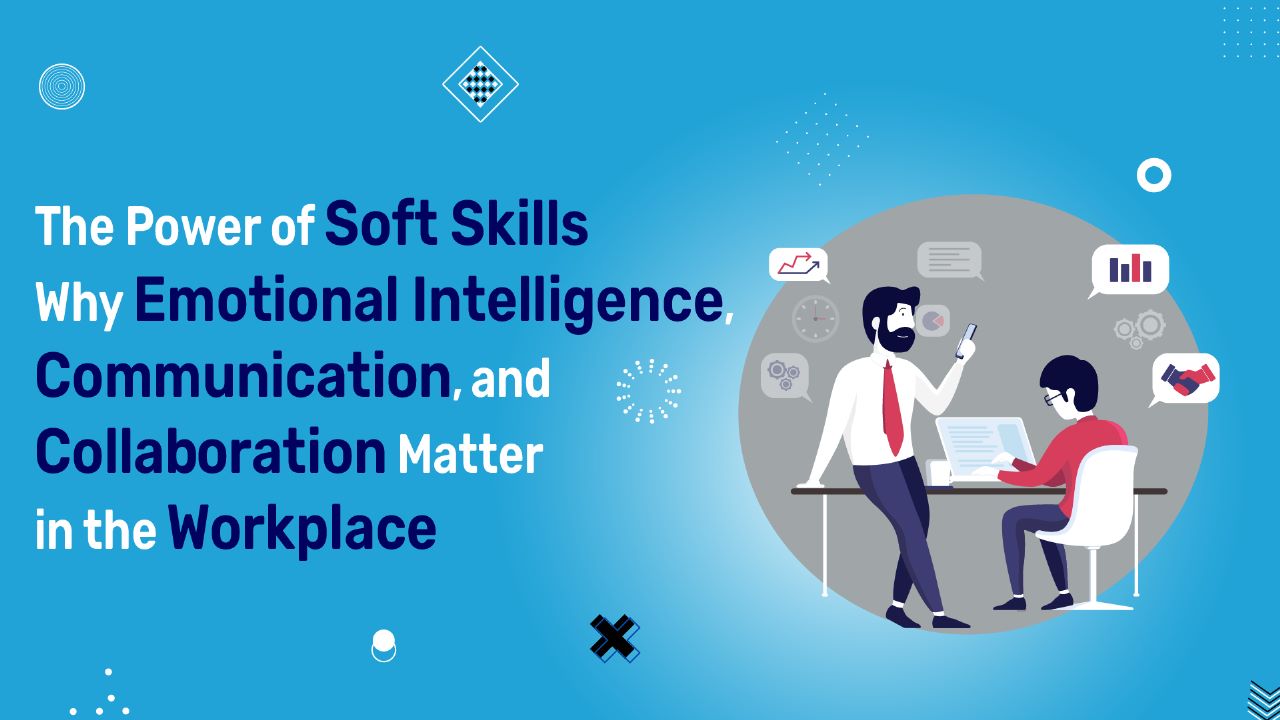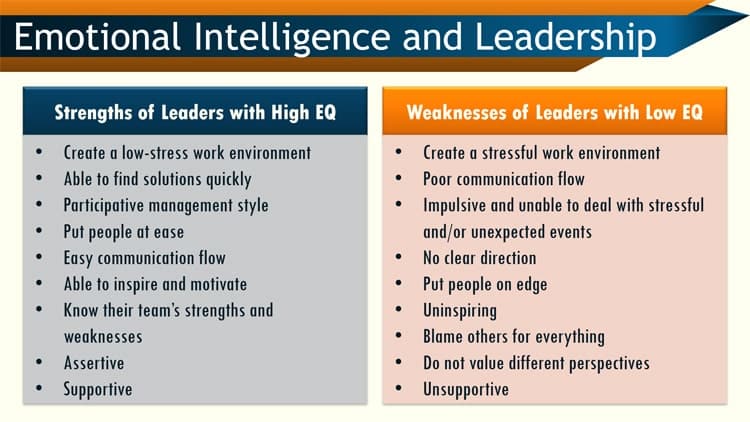In today’s fast-paced and interconnected workplace, the ability to effectively collaborate and communicate with others has become a crucial skill for success. This is where emotional intelligence comes into play. Emotional intelligence, or EQ, refers to the ability to recognize and understand one’s own emotions, as well as the emotions of others, and to effectively utilize this information in navigating social interactions. By developing your emotional intelligence, you can enhance your collaboration and communication skills, and thrive in the workplace. In this article, we will explore the importance of emotional intelligence in the workplace and provide practical tips on how to enhance your EQ to become a better team player and communicator. So, let’s get started on this transformative journey towards improved collaboration and communication!
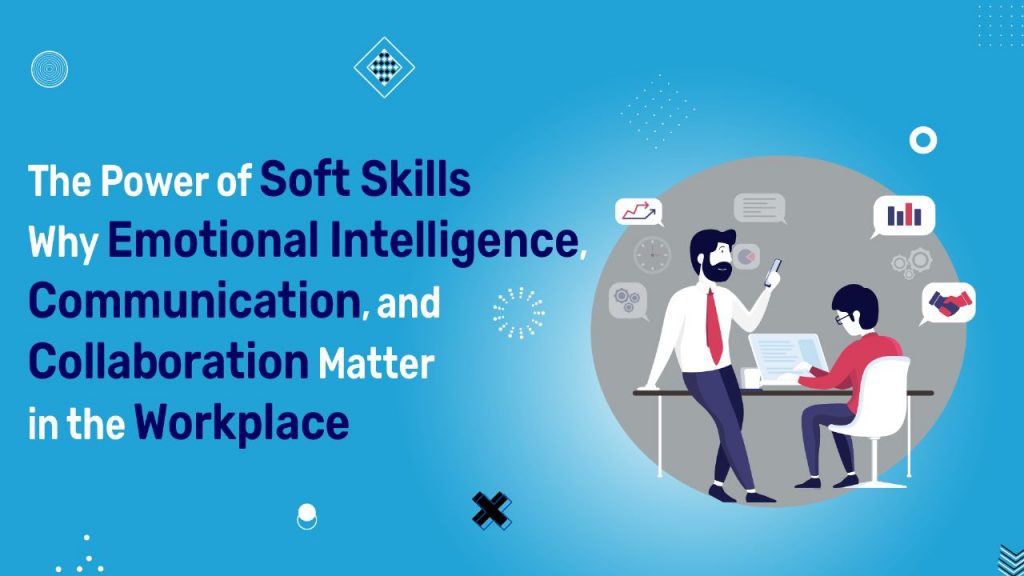
This image is property of flowhcm.com.
Understanding Emotional Intelligence
Emotional intelligence (EI) is a crucial aspect of our personal and professional lives. It refers to our ability to understand and manage our own emotions, as well as recognize and empathize with the emotions of others. EI encompasses various skills, including self-awareness, self-management, empathy, and relationship-building. By developing and honing these skills, we can improve our communication, enhance collaboration, and build healthier and more productive relationships in the workplace.
Definition of Emotional Intelligence
Emotional intelligence can be defined as the capacity to recognize, understand, and manage our own emotions, as well as the ability to recognize and empathize with the emotions of others. It involves being aware of how our emotions impact our thoughts and behavior, and being able to use this awareness to make better decisions and build positive relationships.
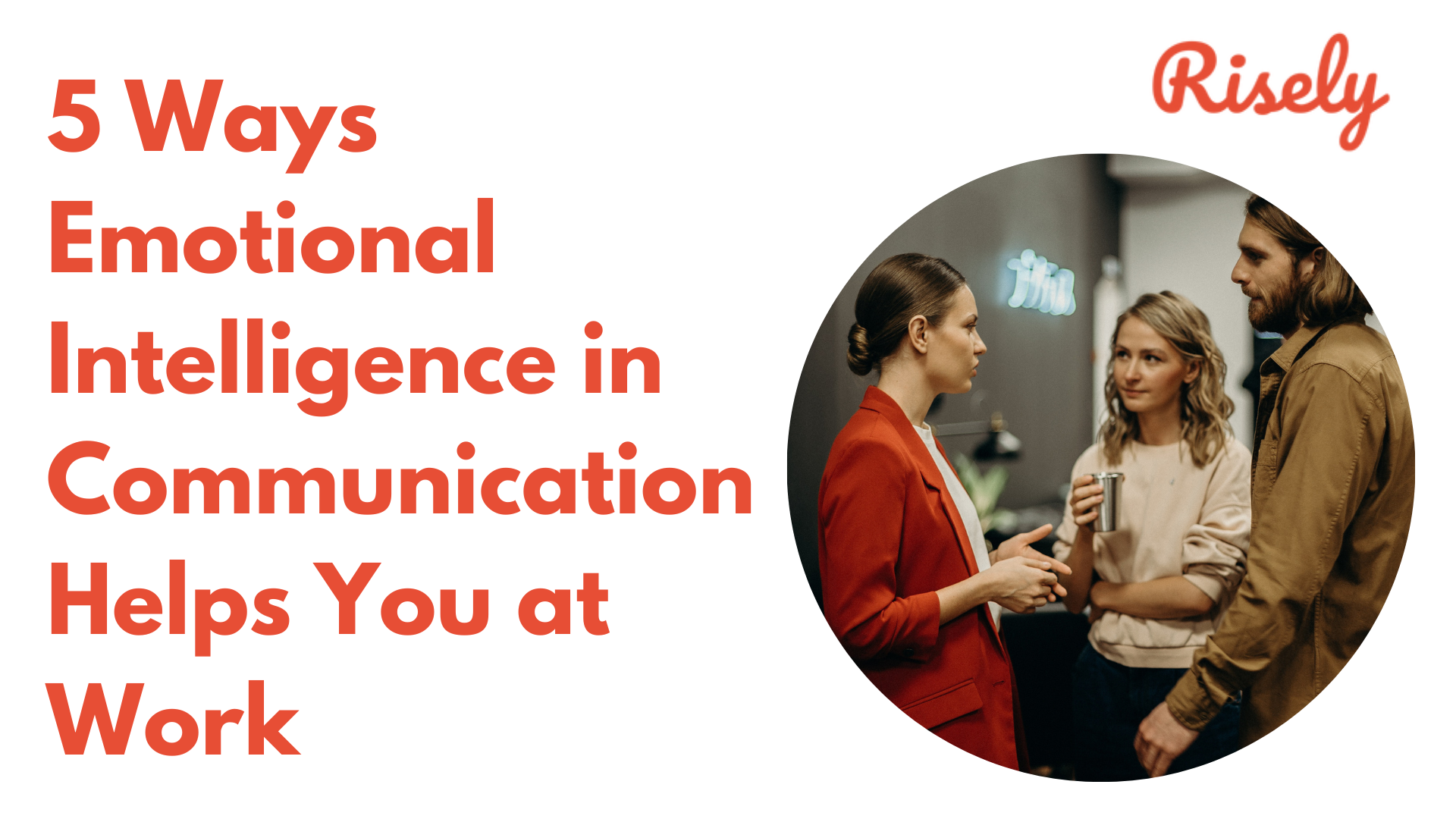
This image is property of www.risely.me.
Components of Emotional Intelligence
Emotional intelligence can be divided into four primary components:
- Self-Awareness: This involves recognizing and understanding our own emotions, as well as their impact on our thoughts and actions. Self-awareness allows us to accurately assess our strengths and weaknesses and have a realistic perception of ourselves.
- Self-Management: Self-management refers to the ability to regulate and control our emotions and behaviors effectively. It involves managing stress, practicing emotional self-control, adapting to change, and setting and achieving goals.
- Empathy: Empathy is the ability to understand and share the feelings of others. It allows us to put ourselves in someone else’s shoes and respond to their needs with compassion and understanding.
- Building Effective Relationships: Building effective relationships involves the skills of rapport-building, conflict resolution, collaboration, and communicating with emotional intelligence. It is about establishing trust and creating a positive work environment.
Importance of Emotional Intelligence in the Workplace
Emotional intelligence plays a vital role in our professional lives. In the workplace, it can enhance collaboration, improve communication, and promote a positive work environment. Employees with high emotional intelligence are more likely to have better relationships with their colleagues, navigate conflicts effectively, and lead and motivate teams successfully.
When individuals possess emotional intelligence, they are better equipped to handle stress and emotions, adapt to change, and set and achieve goals. This leads to increased productivity, reduced burnout and stress levels, and improved overall job performance.
Furthermore, emotional intelligence is essential for leadership positions. Effective leaders possess the ability to inspire and motivate their teams, make informed decisions, and provide constructive feedback. By incorporating emotional intelligence into their leadership style, they can create a supportive and productive work environment.

This image is property of samelane.com.
Enhancing Self-Awareness
Being aware of our own emotions is the first step in developing emotional intelligence. It helps us understand how we feel, why we feel that way, and how our emotions impact our thoughts and behavior. Here are some strategies for enhancing self-awareness:
Recognizing Emotions
Take the time to recognize and label your emotions. Pause and reflect on how you are feeling in different situations. This will increase your emotional vocabulary and improve your ability to understand and manage your emotions.
Understanding Personal Triggers
Identify the specific situations, events, or people that trigger emotional responses in you. By understanding your personal triggers, you can better prepare yourself to handle these situations and manage your emotions.
Developing Mindfulness
Practicing mindfulness involves being fully present in the moment and paying attention to your thoughts, feelings, and bodily sensations without judgment. Mindfulness can increase self-awareness and help us better understand our emotional responses.
Practicing Self-Reflection
Set aside regular time for self-reflection. Reflect on your actions, thoughts, and emotions throughout the day. Consider how you could have better managed your emotions in certain situations and identify areas for growth and improvement.
Mastering Self-Management
Once you have developed self-awareness, the next step is to master self-management. This involves effectively managing stress and emotions, practicing emotional self-control, adapting to change, and setting and achieving goals. Here are some strategies for mastering self-management:
Managing Stress and Emotions
Implement stress management techniques into your daily routine, such as exercise, deep breathing exercises, and time management strategies. Additionally, learn to recognize emotional triggers and develop healthy coping mechanisms to manage difficult emotions.
Emotional Self-Control
Develop strategies to regulate your emotions and respond to challenging situations in a calm and rational manner. Practice techniques such as counting to ten, taking a deep breath, or stepping away from the situation temporarily to gather your thoughts.
Adapting to Change
Embrace change as an opportunity for growth and learning. Develop a flexible mindset and learn to adapt to new situations and challenges. Focus on the positive aspects of change and be open to new ideas and perspectives.
Setting and Achieving Goals
Set realistic and achievable goals for yourself. Break down larger goals into smaller, manageable steps and prioritize your tasks. Celebrate your accomplishments along the way to stay motivated and reinforce a positive mindset.
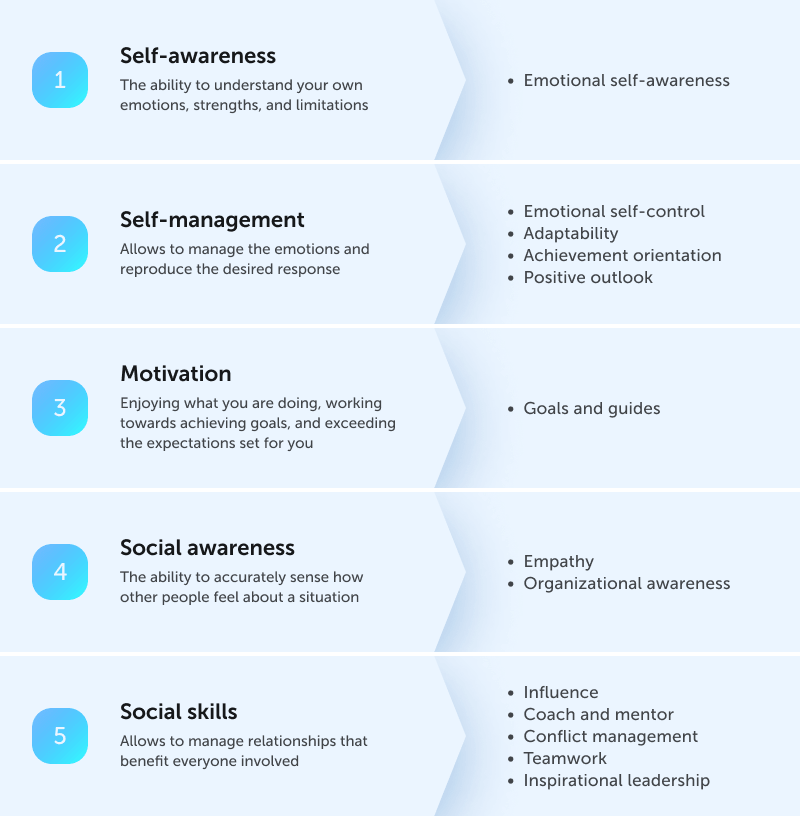
This image is property of www.valamis.com.
Empathy and Social Awareness
Empathy and social awareness are essential components of emotional intelligence. They involve understanding and responding to the emotions of others and building positive relationships. Here are some strategies for developing empathy and social awareness:
Developing Empathy Skills
Practice putting yourself in someone else’s shoes. Try to understand their perspective and emotions, even if you don’t agree with them. Show genuine interest and concern for others and practice empathy in your everyday interactions.
Understanding Non-Verbal Cues
Pay attention to non-verbal cues, such as facial expressions, body language, and tone of voice, during conversations. These cues can provide valuable insights into how someone is feeling, allowing you to respond with empathy and understanding.
Active Listening
Practice active listening by fully focusing on what the other person is saying, without interrupting or formulating your response. Show genuine interest, ask clarifying questions, and reflect back on what the person has shared to ensure understanding.
Cultural Sensitivity
Be aware of and respect cultural differences in communication styles and customs. Recognize that individuals may express their emotions and thoughts differently based on their cultural background, and adapt your communication accordingly.
Building Effective Relationships
Building effective relationships is crucial in the workplace for collaboration, teamwork, and conflict resolution. Here are some strategies for building effective relationships:
Building Rapport and Trust
Take the time to build rapport with your colleagues. Show genuine interest in their lives, listen actively, and find common ground. Trust is the foundation of strong relationships, so be reliable, honest, and keep your commitments.
Conflict Resolution
Approach conflicts with an open mind and a willingness to find a resolution that benefits all parties involved. Communicate assertively, actively listen, and seek to understand the perspective of others. Establish ground rules for respectful and constructive conversations.
Collaboration and Teamwork
Promote a collaborative work environment by actively involving others, seeking diverse perspectives, and valuing contributions from all team members. Foster a culture of open communication, shared goals, and cooperation.
Communicating with Emotional Intelligence
Practice clear and effective communication, considering the impact of your words and tone on others. Express your thoughts and emotions in a respectful and constructive manner. Use active listening skills to ensure understanding and show empathy in your communication.
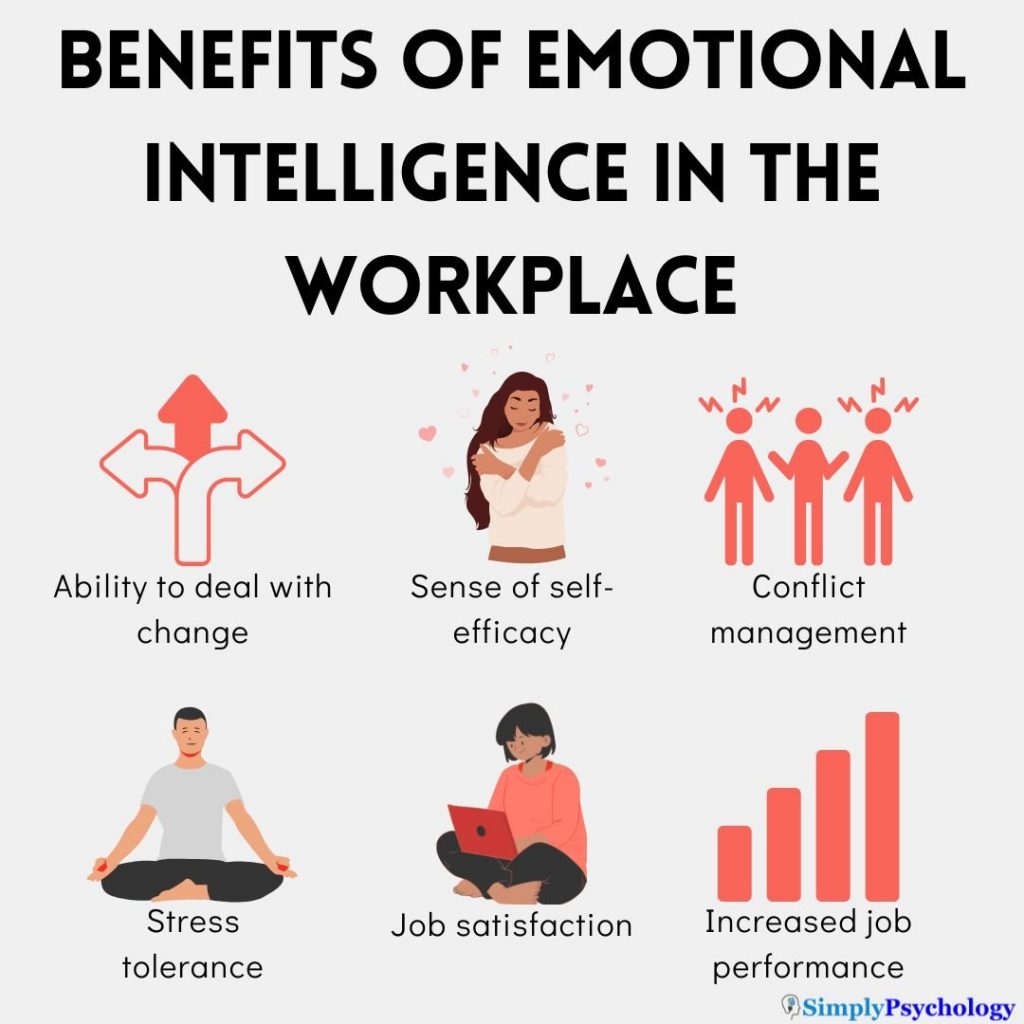
This image is property of www.simplypsychology.org.
Managing Emotions in the Workplace
Managing emotions in the workplace can be challenging, especially during difficult conversations, conflicts, and stressful situations. Here are some strategies for managing emotions effectively:
Handling Difficult Conversations
Approach difficult conversations with empathy and respect. Remain calm and composed, even if the conversation becomes emotional. Listen actively, express your thoughts and feelings clearly, and seek to find a resolution or compromise.
Dealing with Workplace Conflicts
Address conflicts early on and actively work towards resolving them. Encourage open and honest communication, and involve a neutral third party if necessary. Focus on finding common ground and building understanding between all parties involved.
Managing Emotions During Stressful Situations
Implement stress management techniques during stressful situations, such as deep breathing exercises, taking short breaks, or engaging in physical activity. Practice emotional self-control and focus on problem-solving rather than allowing emotions to dictate your actions.
Promoting a Positive Work Environment
Create a positive work environment by fostering a culture of recognition, appreciation, and support. Celebrate achievements, provide constructive feedback, and encourage a healthy work-life balance. Encourage open communication and create opportunities for social connection and team-building.
Emotional Intelligence for Leaders
Emotionally intelligent leaders inspire and motivate their teams, make effective decisions, and provide constructive feedback. Here are some strategies for incorporating emotional intelligence into leadership:
Emotionally Intelligent Leadership
Lead by example and demonstrate emotional intelligence in your own actions and behaviors. Show empathy, practice active listening, and communicate with clarity and transparency. Create an inclusive and supportive work environment that values and recognizes individual contributions.
Inspiring and Motivating Teams
Motivate and inspire your team members by recognizing their strengths and contributions. Provide meaningful feedback and praise for a job well done. Create opportunities for growth and development, and foster a sense of purpose and shared goals.
Effective Decision-making
Take the time to gather all relevant information and consider different perspectives before making decisions. Seek input from your team members and consider the emotional impact of your decisions. Communicate your decisions clearly and provide the rationale behind them.
Providing Constructive Feedback
Deliver feedback in a constructive and supportive manner. Focus on specific behaviors or actions, rather than personal attacks. Provide suggestions for improvement and offer support and resources to help individuals grow and develop.
Emotional Intelligence and Productivity
Emotional intelligence can significantly impact productivity in the workplace. Here are some ways in which it enhances productivity:
Improved Self-Motivation
Individuals with high emotional intelligence are better able to self-motivate and stay focused on their tasks. They have a clear understanding of their goals and can regulate their emotions to maintain a positive and determined mindset.
Increased Focus and Concentration
By managing their emotions effectively, individuals with high emotional intelligence can minimize distractions and maintain focus on their work. They are better able to block out negative thoughts or external factors that may hinder their concentration.
Better Time Management
Emotionally intelligent individuals are skilled at recognizing their own strengths and weaknesses, allowing them to prioritize tasks effectively. They can manage their time efficiently, set realistic deadlines, and allocate their energy to tasks that require their attention the most.
Reduced Burnout and Stress
By practicing self-management and stress management techniques, individuals with high emotional intelligence are less likely to experience burnout and excessive stress. They can effectively regulate their emotions, seek support when necessary, and maintain a healthy work-life balance.
Emotional Intelligence Training and Development
Emotional intelligence can be developed and improved over time. Here are some avenues for training and development:
Workshops and Seminars
Attend workshops and seminars focused on emotional intelligence development. These sessions often provide practical exercises, strategies, and tools for enhancing emotional intelligence in the workplace.
Online Courses and Resources
Explore online courses and resources that offer in-depth training on emotional intelligence. These resources can provide self-paced learning and a deeper understanding of the various components of emotional intelligence.
Coaching and Mentoring
Engage in coaching or mentoring programs to receive personalized guidance and support in developing emotional intelligence skills. A coach or mentor can provide valuable feedback, insights, and accountability.
Continuous Learning and Improvement
Emotional intelligence development is an ongoing process. Continuously seek opportunities to learn and grow by reading books, listening to podcasts, or participating in networking events related to emotional intelligence.
Measuring and Assessing Emotional Intelligence
Measuring and assessing emotional intelligence can help individuals gain insight into their strengths and areas for growth. Here are some ways to measure and assess emotional intelligence:
Emotional Intelligence Assessments
Take advantage of emotional intelligence assessments, such as the Emotional Quotient (EQ) test or the Mayer-Salovey-Caruso Emotional Intelligence Test (MSCEIT). These assessments provide a comprehensive evaluation of emotional intelligence skills.
Feedback and Self-Assessment
Seek feedback from colleagues, managers, or mentors regarding your emotional intelligence skills. Self-assessment exercises, such as journaling or reflecting on past interactions, can also provide insights into areas for improvement.
Monitoring Progress and Growth
Regularly monitor your progress in developing emotional intelligence. Set measurable goals and track your achievements over time. Reflect on the impact of your improved emotional intelligence in your daily interactions and relationships.
Utilizing Emotional Intelligence Tools
Explore various tools available to enhance emotional intelligence, such as apps or online platforms that offer exercises, quizzes, and resources for development. These tools can provide ongoing support and guidance in building emotional intelligence skills.
In conclusion, emotional intelligence is a vital skill set that plays a crucial role in our personal and professional lives. By understanding and developing emotional intelligence, we can enhance our self-awareness, self-management, empathy, and relationship-building skills. This, in turn, can lead to improved collaboration, communication, productivity, and overall well-being in the workplace. Embrace the opportunity to develop your emotional intelligence and unlock your potential for success and fulfillment.
